Science at Old Sarum Primary
Intent – Vision
At Old Sarum Primary school, we encourage children to be inquisitive and curious about the world around them. By equipping pupils with scientific skills and language, we enable them to explore and make sense of a multitude of fascinating scientific concepts.
Our future scientists are raising questions, exploring the answers (with child-led investigations), and striving to seek the truth.
Our Curriculum encourages a strong focus on developing both scientific skills and knowledge alongside critical thinking, with the opportunity for children to ask perceptive questions and explain and analyse research and data. It encourages a growing understanding of scientific concepts, terms and vocabulary. All pupils learn extensive and connected knowledge of substantive concepts including:
- Animals including humans; living things and their habitats
- Plants
- Materials
- Rocks
- States of Matter
- Electricity
- Earth and Space
- Seasonal Changes
- Sound
- Light
- Forces and Magnets
- Evolution and Inheritance
Working scientifically skills split into eight key areas:
- Ask questions
- Plan
- Make observations
- Take measurements
- Gather, record and classify data
- Present findings
- Answer questions and make conclusions
- Evaluate (KS2 only)
Implementation - How we teach
Weekly lessons provide a range of experiences, experiments, investigations and research opportunities to explore these concepts. We explicitly teach the necessary skills, knowledge and vocabulary to support a high level of scientific dialogue between teachers and pupils. There is a progression in conceptual understanding as children move through the school reflected in a variety of opportunities for child led investigations. A range of equipment during experiments scaffolds and supports children’s understanding. We deliver our science curriculum using the White Rose scheme of learning and we provide opportunities to recap and revisit previous topics by using Explorify at the beginning of each sequence of learning.
Impact – What this means for children
- Develop scientific knowledge and conceptual understanding through the specific disciplines of biology, chemistry and physics and that by the end of KS2 they are prepared for scientific learning at secondary school.
- Develop understanding of the nature, processes and methods of science through different types of science enquiries that help them to answer scientific questions about the world around them are equipped with the scientific knowledge required to understand the uses and implications of science, today and for the future
- Develop a curiosity as a result of their learning and embark on creative ways to engage with science concepts and topics.
We constantly monitor impact by utilising formative assessment which takes place as part of our weekly teaching, Recap of vocabulary and key concepts are revisited throughout each unit and concept questions are used to prompt enquiry and recap of previously taught topics. Teacher assessment is used to inform planning and curriculum adaptations.
